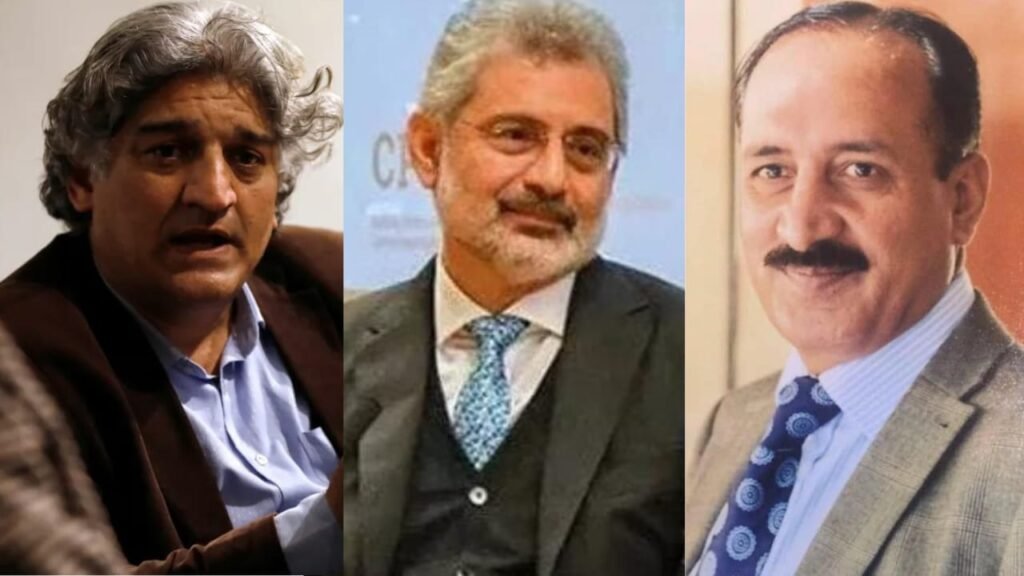ISLAMABAD — In a recent disclosure, former Chief Justice of Pakistan, Qazi Faez Isa, revealed that Justice Mansoor Ali Shah and Ahsan Bhoon was routinely present in all key meetings with the Attorney General and the Federal Law Minister — including discussions surrounding the crucial 26th Constitutional Amendment.
However, what has truly startled the legal community is the unexplained presence of lawyer Ahsan Bhoon in these meetings.
WATCH VIDEO OF MATIULLAH JAN: https://www.facebook.com/share/v/1BZUH6Vv8L/
Despite not being the Law Minister, nor the Chairman of the Pakistan Bar Council (PBC), Ahsan Bhoon regularly attended high-level consultations. At the time, he was merely a member of the Pakistan Bar Council, which does not constitutionally entitle him to participate in executive or judicial decision-making.
Prominent anchor and investigative journalist Matiullah Jan raised serious concerns about Bhoon’s role, calling it “shaky and dubious.”
“A surprise figure kept appearing in these meetings — Ahsan Bhoon — who had no official role in government or the judiciary. Why was he part of these sensitive talks?” Matiullah Jan questioned.
The former CJ’s admission has triggered concerns about transparency, impartiality, and the separation of powers in Pakistan’s judicial and legislative functioning.
Legal analysts argue that Bhoon’s inclusion in meetings between the top judiciary and the executive undermines institutional integrity. With Justice Mansoor Ali Shah’s name also emerging in this context, demands for full transparency have intensified.
Who is Ahsan Bhoon?
Ahsan Bhoon is a senior advocate and a prominent figure in Pakistan’s legal fraternity. While he has held office in the Supreme Court Bar Association in the past, during the period in question, he was not holding any formal post that would justify involvement in state-level constitutional discussions.
Legal experts are calling for clarity from the Supreme Court and the Ministry of Law regarding Bhoon’s exact role and under what authority he attended these meetings.
This revelation adds another layer to the ongoing debate over the independence of the judiciary, the role of the Bar, and the blurred lines between formal authority and influence in Pakistan’s legal system.


